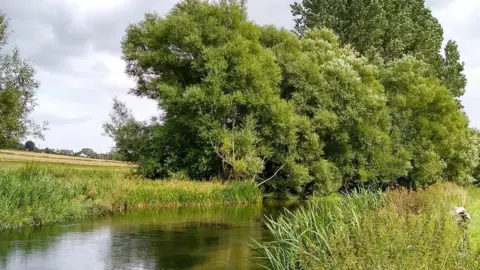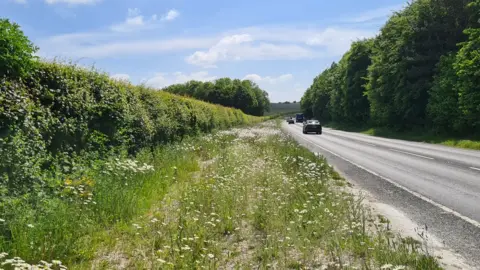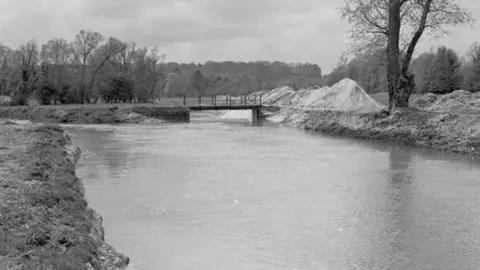Wiltshire A303 to get wildflower and river funding
 Wessex Rivers Trust
Wessex Rivers TrustAlmost £2 million is to be spent to help improve wildlife habitats along a busy dual carriageway.
The National Highways money will help boost wildflowers domains along the A303 in Wiltshire and restore a section of the River Avon.
It is hoped the work will improve the area for many species, including fish, otters, birds, bees and butterflies.
Ben Hewlett from the National Highways said it will also "reduce long-term maintenance costs".
Initial work has started on the scheme, which will see the flowers planted along the road between Amesbury and Andover.
It includes a section of Salisbury Plain that is designated a Site of Special Scientific Interest.
 National Highways
National HighwaysMark Schofield from Salisbury-based charity, Plantlife said he was encouraged by the investment.
"Road verges provide safe haven for more than 700 species of wildflowers, nearly 45% of our total flora, and we are working with partners to transform road verge management across the country as part of a low-carbon, circular economy," he said.
National Highways has set a target of no net loss of biodiversity by 2025.
Wildflowers have already been planted on the verges of the A35 in Dorset, the M4 in Wiltshire and the A46 near Bath.
 National Highways
National HighwaysThe Avon river between Durrington and Lord's Walk in Amesbury has also benefitted from £500,000 of funding.
Matt Irvine, Wessex Rivers Trust's Senior Project Officer, said the project will restore nearly two miles of rare chalk stream habitat and improve fish passage upstream.
"Many of our iconic species will benefit, opening up many miles of spawning opportunities for our fish species," he said.
Atlantic salmon, water voles and otters are some of the species that rely on the river.
When bridges were installed over Countess Roundabout near Amesbury in the 1960s, there was major damage to the natural chalk stream habitat. It is hoped the work can help reverse this.

Follow BBC West on Facebook, X and Instagram. Send your story ideas to: [email protected]
